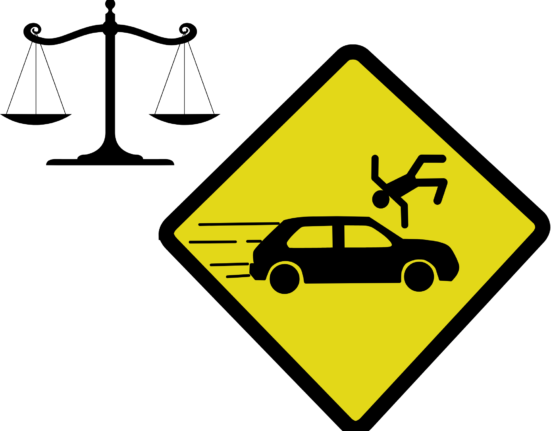What Are the Different Types of Crime Under Criminal Law– Written By Naphtal
Introduction
Criminal law is a special branch of law that deals with crimes. It establishes the legal definition of a crime and prescribes punishments for different types of crimes.
A crime may be defined as an act or omission punishable by law. Crimes are generally categorized as either felonies or misdemeanors, with felonies being the more serious offenses.
Individuals who engage in crimes may be subject to criminal penalties such as imprisonment, probation, or community service.
So, what are the different types of crime under criminal law? Read on to find out everything you need to know.
What Are the Different Types of Crime?
There are many different types of crime under criminal law. However, what exactly constitutes a crime varies from state to state. Generally, crimes can be categorized into four broad categories: property crimes, personal crimes, statutory crimes, and inchoate crimes.
The other forms of crime include hate crimes, white-collar crimes, organized crimes, and crimes against morality.
Let us discuss each one of them to find out how they differ.
1. Personal Crimes
Personal crimes are usually generalized as acts of violence that cause physical, emotional, or psychological harm to the victim. It also includes sexual offenses against the victim. Some of the common personal crimes are assault, battery, rape, murder, and kidnapping.
In most states, assault is defined as an unlawful act that causes another person to fear for their safety. Battery, on the other hand, is defined as the unlawful use of force against another person.
Rape is a form of sexual assault that involves forcing someone to engage in sexual intercourse without their consent. Murder is the intentional killing of another person, while kidnapping is the act of taking someone against their will and holding them in captivity.
2. Property Crimes
Property crimes involve the damage or destruction of another person’s property. It also includes theft, burglary, and vandalism.
Theft is defined as the act of taking another person’s property forcefully with the intent to turn it into yours.
Burglary is the unlawful entry into a building with the intent to commit a crime. Vandalism is the deliberate destruction or damage of another person’s property.
Most property crimes are considered misdemeanors, while some, such as burglary, can be charged as felonies.
3. Statutory Crimes
Statutory crimes are offenses created by statutes or laws passed by legislatures. These crimes are usually classified according to their seriousness as either felonies or misdemeanors.
The most common statutory crimes are DUI, drug offenses, and traffic offenses.
DUI is the offense of driving under the influence of alcohol or drugs. Drug offenses involve the unlawful possession, sale, manufacture, or distribution of controlled substances.
Traffic offenses are violations of the rules of the road that govern the operation of vehicles.
4. Inchoate Crimes
Inchoate crimes are offenses that are committed in furtherance of a crime. They are also known as incomplete crimes because the criminal act is not completed. The most common inchoate crimes are attempt, conspiracy, and solicitation.
Attempt is defined as the unlawful act of trying to commit a crime but failing to do so. Conspiracy is the unlawful act of agreeing with another person to commit a crime. Solicitation is the unlawful act of encouraging another person to commit a crime.
5. Hate Crimes
Hate crimes are offenses that are motivated by bias or prejudice against a certain group of people. The most common victim groups of hate crimes are minorities, LGBTQIA+ people, and religious groups.
Some of the common hate crimes are assault, battery, vandalism, and property damage.
6. White-Collar Crimes
White-collar crimes are nonviolent offenses committed by business professionals occupying high positions in organizations to gain financial benefits. The most common white-collar crimes are embezzlement, fraud, and money laundering.
White-collar crimes tend to generate less public concern because they are not considered to be as harmful as violent crimes. However, they can significantly impact the victim’s finances and well-being.
For instance, it is believed that the Great Recession occurred partly as a result of a wide range of white-collar crimes committed within the mortgage and banking industries.
7. Organized Crimes
Organized crimes are offenses that are committed by groups or organizations of people. These crimes are usually complex and involve multiple participants. The most common organized crimes are drug trafficking, human trafficking, and money laundering.
Organized crimes are often associated with criminal enterprises such as the Yakuza in Japan and the Mafia in Italy.
These enterprises are often involved in various illegal activities, including extortion, racketeering, and gambling.
8. Crimes Against Morality
Crimes against morality are also known as victimless crimes because no victim or complainant exists. The most common crimes against morality are prostitution, gambling, and drug use.
These offenses are often considered victimless because the people who engage in them do so willingly, and there is no force or coercion involved.
However, some people argue that these crimes do have victims. For instance, prostitution can result in the spread of diseases such as HIV/AIDS.
While victimless crimes are often seen as being harmless, they can sometimes lead to other criminal activities. For instance, drug use can lead to drug trafficking and violence.
9. Crimes Against Humanity
Crimes against Humanity are offenses committed against a group of people with the intention of destroying, harming, or killing them. The most common crimes against Humanity are genocide, war crimes, and crimes against civilians.
These offenses are often committed during times of conflict or war. They can also be motivated by hate or prejudice.
Crimes Against Humanity are considered the most serious of all crimes because they involve the intentional destruction of a group of people. They are often punishable by death or life in prison.
Summary
The types of crime under criminal law are varied and can confuse those unfamiliar with the system.
However, understanding the different types of crimes and their definitions gives you a better idea of what may or may not constitute a criminal offense.
If you have been charged with a crime, seeking legal representation is essential to protect your rights.
Author
This article is written by Naphtal. He is the brand manager at Legal Giant and a highly experienced content writer. Legal Giant is a leading lawyer referral site with clients all over the U.S. When Naphtal is not working, he enjoys spending time with his son and exploring nature.
![]()







Leave feedback about this